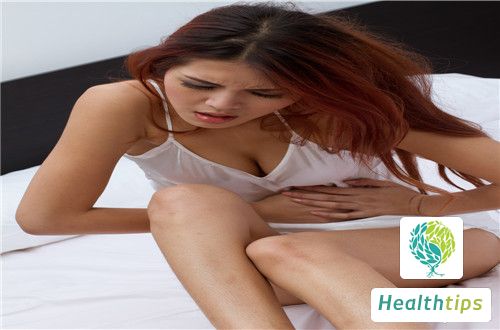For some more serious gastric polyps, surgical resection is still necessary. After surgical resection of gastric polyps, patients must pay attention to rest and recuperation. Postoperative recuperation is reflected in many aspects. In addition to wound care, dietary care is very important and will directly affect the recovery of postoperative wounds and conditions. After surgery, a diet plan can be formulated based on the situation. Then what is the dietary menu for one week after gastric polyp surgery?
 1. After surgery, fasting is required until bowel movement recovers and anus exhausts. After removing the gastric tube, a small amount of water can be consumed on the same day, 4-5 tablespoons each time, once every 2 hours. If there are no discomfort reactions, appropriate clear liquid diet can be given on the next day, 50ml-80ml each time.
2. Liquid food 100-150ml each time. 6-7 meals per day. The principles of diet are: non-irritating, liquid, small meals, eating every 2-3 hours, selecting non-bloating and not too sweet foods, such as egg soup, rice soup, vegetable soup, lotus root starch, etc. It is advisable to lie flat for 20-30 minutes after meals. If recovery is normal after surgery, low-fat semi-liquid diet can be consumed two weeks after surgery, such as porridge, noodles, wonton, etc. 5-6 meals per day. The principles of diet are: semi-liquid, with normal protein intake, minimal fiber content, and small meals.
3. Soft foods and side dishes should be rich in nutrition and easy to digest. Cold, greasy, sour, spicy, and other irritating and bloating foods should be avoided. Patients should chew slowly, eat more fresh vegetables and fruits, avoid high-fat foods and pickled foods, supplement iron and vitamins appropriately, avoid smoking and drinking, and have regular meals. After 3-6 months of surgery, the diet can gradually be restored to normal according to the physical condition.
4. Other diets should be based on self-feeling comfort, with low residue, gentle, and easy-to-digest principles. Eat small meals frequently and avoid too sweet, too salty, and too concentrated foods. If symptoms such as nausea and bloating occur after eating, food intake should be suspended. Start with the easiest-to-digest foods and gradually progress from dilute to concentrated, from liquid to soft to solid, allowing the stomach to gradually get used to digesting food. Usually, liquid diet can be given from the 10th day after surgery, such as thick soup, half-boiled eggs, shredded meat, shredded fish, steamed eggs, or stewed fish and porridge. After discharge, soft foods can be tried, and the diet can reach normal levels about one month after surgery.
1. After surgery, fasting is required until bowel movement recovers and anus exhausts. After removing the gastric tube, a small amount of water can be consumed on the same day, 4-5 tablespoons each time, once every 2 hours. If there are no discomfort reactions, appropriate clear liquid diet can be given on the next day, 50ml-80ml each time.
2. Liquid food 100-150ml each time. 6-7 meals per day. The principles of diet are: non-irritating, liquid, small meals, eating every 2-3 hours, selecting non-bloating and not too sweet foods, such as egg soup, rice soup, vegetable soup, lotus root starch, etc. It is advisable to lie flat for 20-30 minutes after meals. If recovery is normal after surgery, low-fat semi-liquid diet can be consumed two weeks after surgery, such as porridge, noodles, wonton, etc. 5-6 meals per day. The principles of diet are: semi-liquid, with normal protein intake, minimal fiber content, and small meals.
3. Soft foods and side dishes should be rich in nutrition and easy to digest. Cold, greasy, sour, spicy, and other irritating and bloating foods should be avoided. Patients should chew slowly, eat more fresh vegetables and fruits, avoid high-fat foods and pickled foods, supplement iron and vitamins appropriately, avoid smoking and drinking, and have regular meals. After 3-6 months of surgery, the diet can gradually be restored to normal according to the physical condition.
4. Other diets should be based on self-feeling comfort, with low residue, gentle, and easy-to-digest principles. Eat small meals frequently and avoid too sweet, too salty, and too concentrated foods. If symptoms such as nausea and bloating occur after eating, food intake should be suspended. Start with the easiest-to-digest foods and gradually progress from dilute to concentrated, from liquid to soft to solid, allowing the stomach to gradually get used to digesting food. Usually, liquid diet can be given from the 10th day after surgery, such as thick soup, half-boiled eggs, shredded meat, shredded fish, steamed eggs, or stewed fish and porridge. After discharge, soft foods can be tried, and the diet can reach normal levels about one month after surgery.




















